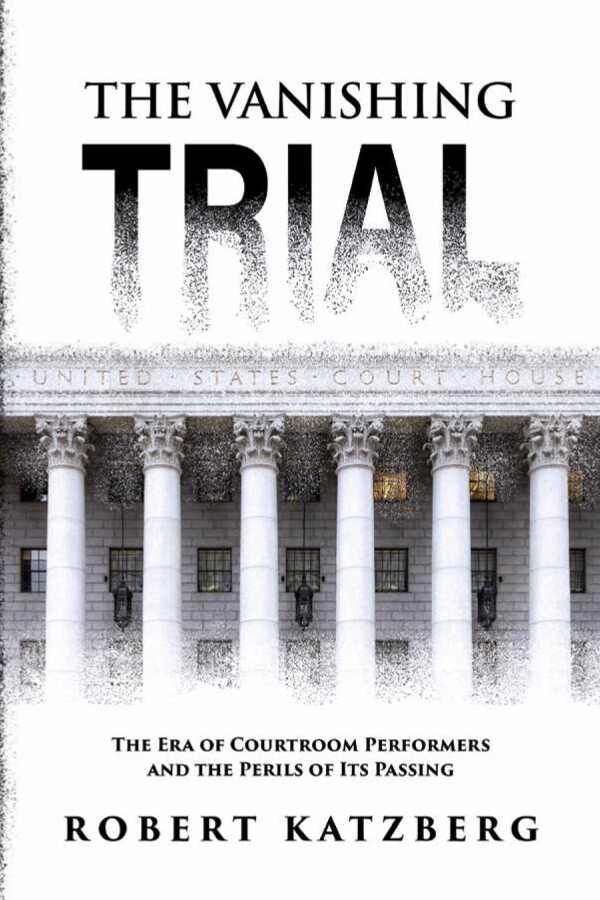
The Vanishing Trial
The Era of Courtroom Performers and the Perils of Its Passing
Examining the causes and costs of dwindling jury trials in federal courts, The Vanishing Trial is a compelling glimpse behind the curtain of the courtroom.
Brimming with courtroom drama and sobering statistics, Robert Katzberg’s The Vanishing Trial mines forty years of courtroom experience to illuminate and lament the growing prevalence of federal defendants who choose not to exercise their right to a jury trial.
Through the lens of his personal experiences as both a prosecutor and a white collar defense attorney, Katzberg exposes intimate details of the judicial system from both sides, his anecdotes running the gamut from humorous to alarming. Herein, judges hold grudges and mob hitmen crack jokes. Katzberg portrays both the brilliance and the foibles of the system to underpin a simple question: “If the average citizen is no longer able to play a key role in that system … where does that leave the rule of law?”
The text takes a four-pronged approach: describing Katzberg’s entry into the world of the courtroom; depicting what that world was like when trials were in abundance; examining reasons for the decline in federal jury trials; and positing possible solutions. Extensive space and detail is granted to Katzberg’s own career and the spectacle of the courtroom in the 1970s and 1980s, though these anecdotes are presented with limited analysis.
As a memoir of courtroom dramas, the work is lively; notable legal figures whom Katzberg worked with or went up against are addressed. But the text falters when it comes to presenting the causes of and solutions of dwindling jury trials, relegating such analysis to its penultimate chapter, which contains a well-reasoned argument against the Federal Sentencing Guidelines adopted in 1987.
Images of Katzberg and his colleagues, courtroom sketches, and newspaper clippings give the effect of a personal career play-by-play; they are not captioned for context. The book’s notes section is cluttered with supplementary details and excerpts.
At times, the book’s anecdotes are disheartening, undermining its call to revive public interest in exercising one’s civic duty. The book calls a trial by jury a sacred vessel of democracy; it laments that judicial discretion is infringed upon by sentencing guidelines, though at the same time claiming that such discretion is hindered by personal biases, vendettas, and laziness. Katzberg, recalling an interview for a clerkship early in his career, recounts a judge beckoning him to the window of his office to mock a prostitute standing outside; such gauche anecdotes are an impediment to developing faith in the legal system, and they call into question whether juries are even able to exercise power in the face of amoral judges.
An intriguing glimpse at the drama behind the scenes in courtrooms, The Vanishing Trial makes a case for trials by jury.
Reviewed by
Danielle Ballantyne
Disclosure: This article is not an endorsement, but a review. The publisher of this book provided free copies of the book and paid a small fee to have their book reviewed by a professional reviewer. Foreword Reviews and Clarion Reviews make no guarantee that the publisher will receive a positive review. Foreword Magazine, Inc. is disclosing this in accordance with the Federal Trade Commission’s 16 CFR, Part 255.
